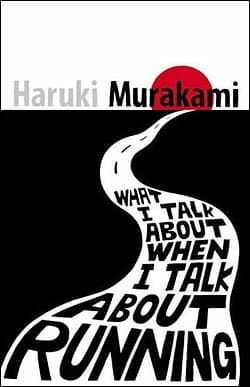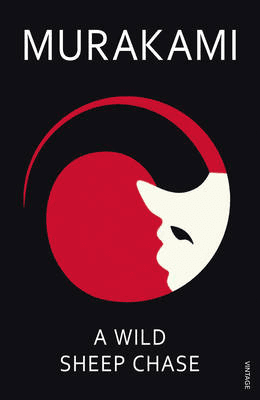What I Talk About When I Talk About Running vs. A Wild Sheep Chase
What I Talk About When I Talk About Running
What I Talk About When I Talk About Running is a memoir by Haruki Murakami where he talks about two things that define a big part of his life: running and writing. Murakami didn’t always plan on being a novelist. He was running a jazz bar in his twenties when, while watching a baseball game, he suddenly thought, “I could write a novel.” He gave it a shot, it worked out, and he eventually sold his bar to focus on writing full-time. But sitting at a desk all day, smoking and not moving much, wasn’t doing his health any good. That’s when he picked up running. For Murakami, running is more than just exercise—it’s part of his routine and, in a way, a metaphor for writing. Both take endurance. Both are long hauls where you push yourself day after day, even when you don’t feel like it. The book follows him as he trains for marathons, competes in triathlons, and grapples with the slow decline of his physical abilities as he ages. He talks a lot about acceptance—accepting getting older, accept...
A Wild Sheep Chase
A Wild Sheep Chase by Haruki Murakami is a strange, offbeat novel that blends a detective story with surreal, dreamlike elements. It follows an unnamed, easygoing narrator who gets pulled into a bizarre search for a mysterious sheep with a star-shaped mark on its back. The story kicks off when a powerful figure in Japan’s underworld pressures the narrator into finding this sheep, which seems to hold some kind of mystical influence. The book is set in late 1970s Japan, moving from urban Tokyo to the cold, isolated landscapes of Hokkaido. Along the way, the narrator is joined by his girlfriend, whose unusually perceptive ears give the story an added touch of the weird. They meet a cast of quirky characters—a shadowy secretary, a reclusive professor obsessed with sheep, and a man in a sheep costume who speaks in riddles. What stands out is how ordinary things—bars, hotels, quiet towns—become strange and otherworldly. Murakami mixes humor, loneliness, and philosophical musings, all wrapp...

Reviews
Reviewed on 2/28/2024
I read this book when I first started running long distance. I was living in Chiang Mai and I'd go this huge park a couple of times a week and just run loops around the lake. At the end of my run I'd grab a milk tea and a banana bread from a local coffee shop and just read a few pages. Great memories of many chill evenings, running and reading about running.
Reviews
| Item | Votes | Upvote |
|---|---|---|
| Easy read | 1 | |
| Motivating | 1 | |
| Peaceful | 1 |
| Item | Votes | Upvote |
|---|---|---|
| No cons yet, would you like to add one? | ||
| Item | Votes | Upvote |
|---|---|---|
| More accessible than some of Murakami’s other works | 1 | |
| Good starting point for new Murakami readers | 1 | |
| Recognized with the 1982 Noma Literary Newcomer's Prize | 1 |
| Item | Votes | Upvote |
|---|---|---|
| No cons yet, would you like to add one? | ||
Frequently Asked Questions
'What I Talk About When I Talk About Running' is often considered more accessible and motivating, making it a great choice for new readers who are interested in personal reflections on running and writing. In contrast, 'A Wild Sheep Chase' is recognized as a good starting point for those looking to delve into Murakami's surreal storytelling, but it may be more complex due to its blend of mystery and magical realism. Ultimately, the choice depends on whether the reader prefers a memoir-style narrative or a fictional quest with philosophical undertones.
'What I Talk About When I Talk About Running' is described as a peaceful read, focusing on the tranquility and meditative aspects of running. In contrast, 'A Wild Sheep Chase' is filled with surreal and bizarre elements that may not provide the same sense of calm. Therefore, for readers seeking a peaceful experience, Murakami's running memoir is likely the better option.
'What I Talk About When I Talk About Running' is explicitly noted for its motivating qualities, as it shares personal insights into the discipline of running and its impact on life and creativity. On the other hand, 'A Wild Sheep Chase' does not focus on motivation in the same way, as it is more centered around a surreal adventure and philosophical exploration. Therefore, for motivation, the running memoir is the superior choice.
'What I Talk About When I Talk About Running' is a memoir by Haruki Murakami that explores the intertwined themes of running and writing. Murakami shares his journey from running a jazz bar to becoming a novelist, detailing how running became a crucial part of his life and a metaphor for his writing process. The book reflects on endurance, acceptance of aging, and the highs and lows of both running and writing.
Pros of 'What I Talk About When I Talk About Running' include its easy readability, motivating content, and the peaceful tone of Murakami's writing. There are no cons listed for this book, indicating that readers generally find it to be a positive experience.
Haruki Murakami is a renowned Japanese author known for his unique blend of magical realism, surrealism, and themes of loneliness and existentialism. He gained international fame with novels such as 'Norwegian Wood' and 'Kafka on the Shore.' In 'What I Talk About When I Talk About Running,' he shares personal insights into his life as a writer and runner.
The writing style of 'What I Talk About When I Talk About Running' is straightforward and conversational, as if Murakami is sharing his thoughts over coffee. He often includes personal anecdotes and reflections, making the narrative relatable and engaging for readers.
In 'What I Talk About When I Talk About Running,' memorable moments include Murakami's experiences training for marathons, his reflections on aging and acceptance, and the simple joys of running, such as the satisfaction of finishing a race and enjoying a cold beer afterward. His vivid descriptions of running the original marathon route in Greece also stand out.
'A Wild Sheep Chase' by Haruki Murakami is a unique novel that combines elements of a detective story with surreal and dreamlike qualities. It follows an unnamed narrator who is drawn into a bizarre quest to find a mysterious sheep marked with a star on its back, under pressure from a powerful figure in Japan's underworld. The narrative unfolds in late 1970s Japan, transitioning from urban Tokyo to the remote landscapes of Hokkaido, and features a cast of eccentric characters and themes of identity, power, and the search for meaning.
Pros of 'A Wild Sheep Chase' include its accessibility compared to some of Murakami's other works, making it a good starting point for new readers. Additionally, it was recognized with the 1982 Noma Literary Newcomer's Prize. There are no listed cons for this novel, indicating that readers generally find it appealing.
Haruki Murakami is a renowned Japanese author known for his unique blend of magical realism, surrealism, and themes of loneliness and existentialism. His works often explore the complexities of human relationships and the nature of reality. Murakami has gained international acclaim and has written several bestsellers, including 'Norwegian Wood', 'Kafka on the Shore', and '1Q84'.
'A Wild Sheep Chase' explores themes such as identity, power, and the search for meaning. The narrative often blurs the lines between the ordinary and the surreal, inviting readers to reflect on the nature of reality and the significance of the bizarre encounters the narrator experiences throughout his journey.




















